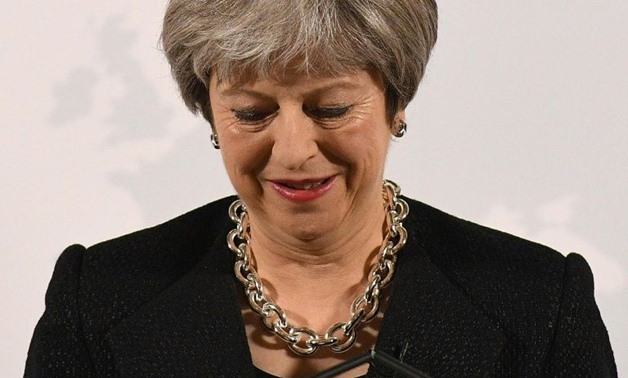
British Prime Minister Theresa May has acknowledged for the first time that Britain may suffer new trade barriers after leaving the EU
BRITAIN - 3 March 2018: Prime Minister Theresa May called Friday for a wide-ranging free trade deal with the EU after Brexit, but admitted it was time to face the "hard facts" about the economic consequences of leaving the bloc.
In a detailed speech just weeks before starting negotiations on the future partnership with Brussels, May confirmed Britain would leave the European Union's single market and customs union after Brexit in March 2019.
In its place she called for the "broadest and deepest possible agreement, covering more sectors and co-operating more fully than any free trade agreement anywhere in the world today".
But she acknowledged for the first time that Britain may suffer new trade barriers by severing its formal ties, a move driven by a desire to end mass migration and throw off EU rules.
"I want to be straight with people because the reality is we all need to face up to some hard facts... In certain ways our access to each other's markets will be different," she said.
The EU's chief negotiator Michel Barnier welcomed the "clarity" on Britain's position, as well as "a recognition of trade-offs".
He said her proposals would inform the bloc's guidelines, which are expected to be drawn up next week before being approved by EU leaders at a summit in three week's time.
- 'Cherry-picking' -
In a speech in London -- hastily relocated from northeast England because of heavy snow -- May suggested the new trade deal would include "binding commitments" to agree some regulations such as on state aid and competition.
She repeated that she wanted to end the jurisdiction of the European Court of Justice, insisting there must be an independent arbiter of the agreement.
But in a bid to maintain "as frictionless as possible" trade in goods, May promised to commit to some regulations and minimum standards, while reserving the option for Britain to diverge.
The EU has previously dismissed the bespoke approach as "cherry-picking", but May pointed out that each of the bloc's existing trade deals with other countries was slightly different.
May's Conservative government is divided on how closely Britain should align with the EU, but a leading eurosceptic, Foreign Secretary Boris Johnson, was quick to back her speech.
The plan would keep close ties but allow Britain "to innovate, to set our own agenda, to make our own laws and to do ambitious free trade deals around the world", he said on Twitter.
However Scottish First Minister Nicola Sturgeon, a strong opponent of Brexit, said it was the same "wishlist plan already rejected by the EU".
"Even if it could be achieved, it would leave us with arrangements nowhere near as good as being in single market -- and with no discernible upside," the Scottish National Party leader said.
- 'Precious' United Kingdom -
EU leaders have been sharply critical of the prime minister's optimistic view of what she could achieve, but had been pressing for details as the start of formal negotiations comes closer.
Talks on the terms of the withdrawal and a transition period are already underway, and Britain hopes a trade deal is agreed to by the end of the year.
Tensions rose this week when the EU published a draft treaty suggesting Northern Ireland could stay in a customs union while the rest of Britain remained outside.
The proposal is a fall-back option if London fails to come up with a better solution to avoid new customs checks with EU-member Ireland, amid concerns a hard border could upset the island's fragile peace.
But May reacted with outrage, and repeated Friday that she would "not allow anything that would damage the integrity of our precious Union".
She insisted that it was possible to avoid physical checks through technology and schemes such as trusted trader programmes.
May has ruled out staying in a customs union with the EU because it would stop Britain signing outside trade deals, but is facing opposition to the move at home.
The main opposition Labour party this week joined business groups in calling for a new customs union to protect jobs and resolve the Irish border issue.
Their change in stance raises the stakes in parliament, which will vote on the final exit deal and where May has only a slim majority.


Comments
Leave a Comment